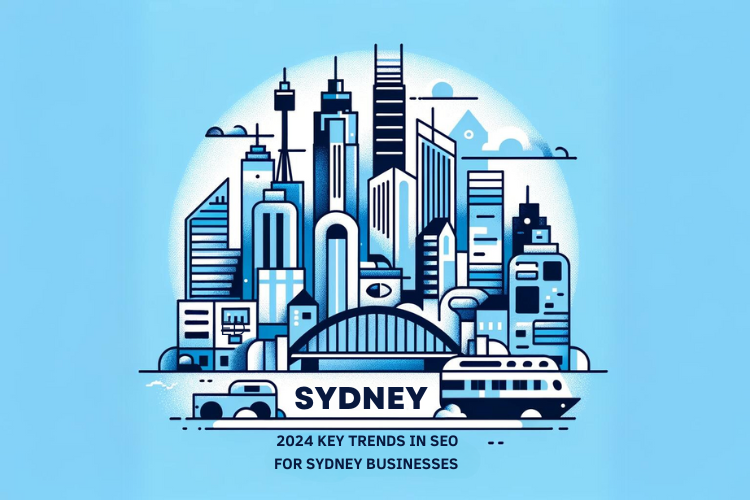When aiming to make sales for any business, it is important to understand how the minds of your customers work to communicate and increase your business effectively. Marketing a business online involves many psychological elements that can make or break your prospects? perception of your company. Digital marketing for businesses involves principles like?search engine optimisation,?digital advertising, reputation management, and?social media, which can help to alter your customer?s perceptions.
Understanding The Psychology of Online Marketing
The psychology of online marketing comes down to consumer behaviour, which refers to the study of consumers and the processes they use to choose and use products and services. This includes their emotional, mental and behavioural responses to stimuli, including marketing, brand experience and the products or services provided.
When it comes to online behaviour, we need to dive deep into the experience our customers receive in terms of marketing, communication and ease of processes when dealing with the brand online.
From a business perspective, understanding the psychology of selling can dictate your digital marketing strategy and the extent of your online presence.
The Psychology of Selling
There are a few key times when psychology can be a helpful tool in selling:
- When trying to persuade someone to buy something.
- When working to build trust with a potential customer.
- When wanting to get someone?s attention and make them feel heard and important.
Let?s dive into a few primary ways digital marketing uses psychology to attract and retain customers for businesses.
Social Proof
Social proof is a powerful tool for communicating approval for a business, product or service with new customers. According to Sprout Social, the concept of social proof refers to the idea that people copy the actions of others in an attempt to emulate behaviour in certain situations. By emulating the behaviour of other past customers, future customers can aim to get a similar result to past customers of the business. Online, businesses can establish social proof through several mediums, including positive reviews on Google, Facebook, Trustpilot and more review sites. Having a high amount of 4+ star reviews shows that other customers have had a good experience with your business. Therefore, new customers considering purchasing would expect to have a good experience too.
Highlighting testimonials and case studies are also essential to convey previous success, create rapport, and establish trust. Social proof can also be generated through social media when a company has grown a community of engaged followers. By seeing other social media users interacting with a business, potential customers are more likely to trust and engage with the brand. When used correctly, social proof can be a very effective tool for persuading consumer behaviour online.
Authority
One of the most important aspects of online marketing is communicating authority. Highlighting the authority of a business builds trust ? a strongly persuasive element of selling. Establishing trust in your brand comes down to highlighting your unique selling point and reputation- why should customers choose your business over the competition? One of your best unique selling points is likely your experience, skill and knowledge of yourself and your business?s team members. The next step is to show your online viewers this to persuade more sales.
If you?re considering how to build authority for your business through digital marketing,?content marketing?and?search engine optimisation?(SEO) are two services to look at to help build trust and establish rapport between two parties. These services will help position your business as an authority in comparison to other businesses in the market and project a trusted, confident image. Additionally, content marketing and SEO can also be used to control the conversation in order to steer it in the desired direction. For example, if you want to highlight specific elements of your product or service, you can elaborate on these to draw the attention of your target audience.
One of the main goals of search engine optimisation is to build authority, not directly regarding you or your staff?s authority, but your website?s authority amongst its competitors on the Internet. By obtaining links directing to your site and providing valuable content, Google sees your website as more authoritative and will improve your search engine rankings.
Reciprocity
Offering something to your audience for free is often a great way to get your foot in the door and start the first touchpoint between your business and your potential customer. This offer could be a free consultation, a freebie or a digital lead magnet. By offering your prospects something of value, the notion of reciprocity ensues, meaning your customer is more likely to want to give something in return. This could be their email address, money or time, ideally resulting in a sale. There are a few things that are key to making the reciprocity principle effective.
When preparing your lead magnet, make sure that it?s relevant and helpful for the audience. The more value you provide, the higher the chances of someone engaging or giving value back. For example, if you?re attempting to get a new client whose lifetime value is significant, it would be worth spending an hour of your time providing a free consultation or strategy to them. On the other hand, if you want to collect email addresses, you could offer a free booklet or interesting blog post in exchange. Keep things practical by focusing on how your offering can help the audience achieve their goals.
Frequency Bias
Frequency bias occurs when, after noticing something for the first time, a person is more likely to notice it more often. This plays into the digital marketing concepts of paid advertising, influencer advertising and social media. By making your audience aware of your products or services through?digital advertising, influencer sponsorships or other?social media posts, they may be more likely to keep an eye out for your products in the future. The more they see your brand, the more familiar it will feel, resulting in a more positive perception.
Not only will frequency bias increase your brand awareness after the first time your audience is subjected to your brand, but it can also help foster better memorability of your brand, products or services.
So, how will you use digital marketing to persuade the behaviour of your customers? Chat with our Crunchy Digital team for more on search engine optimisation, content marketing, paid advertising, and online reputation management can increase your online visibility and motivate action from your target audience. Connect with your customers by understanding the psychology behind making a sale.




